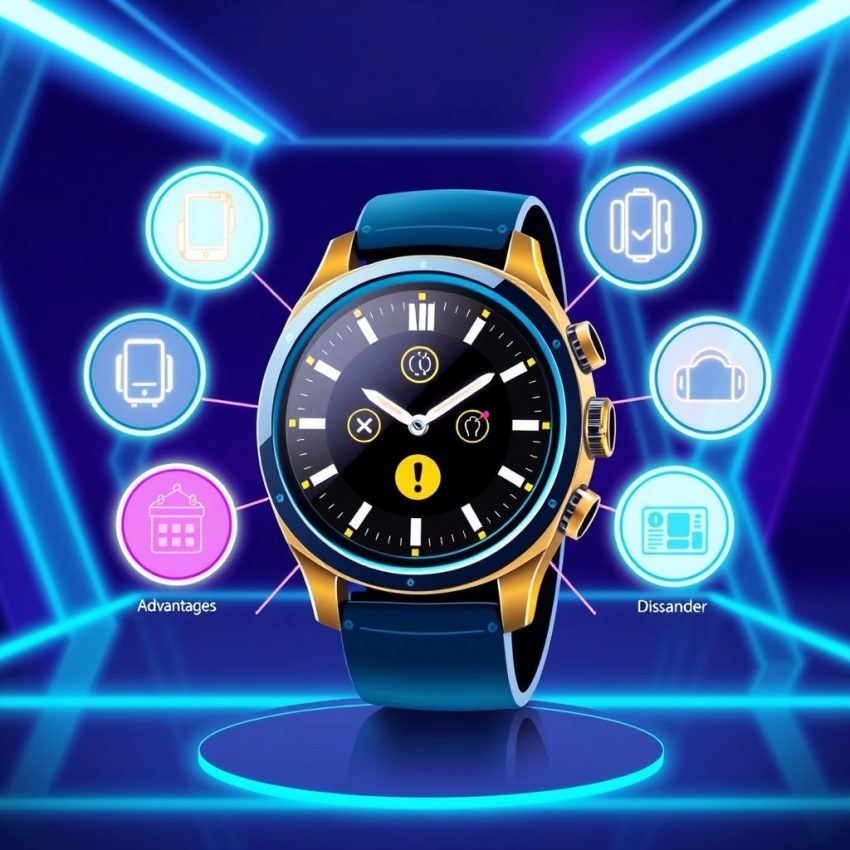Is a Smartwatch Worth It in 2025 and Beyond? A Deep Dive
Smartwatches. They've gone from novelty tech to ubiquitous accessories. But in 2025 and beyond, are they still a worthwhile investment? The answer, as with most things, is: it depends. This post will explore the pros and cons to help you decide if a smartwatch is right for you.
The Case for Smartwatches in 2025 and Beyond:
-
Health & Fitness Tracking: This is arguably the biggest selling point. Beyond basic step counting, modern smartwatches offer advanced features like:
- ECG monitoring: Detect irregular heart rhythms.
- SpO2 tracking: Monitor blood oxygen levels.
- Sleep tracking: Analyze sleep stages and provide personalized recommendations.
- GPS tracking: For accurate workout data and outdoor navigation.
- Stress monitoring: Gauge your stress levels throughout the day.
These features can be invaluable for individuals focused on their well-being, providing data-driven insights to improve their health.
-
Increased Convenience: Ditch your phone for quick notifications. Smartwatches allow you to:
- Receive calls and texts: Respond quickly without pulling out your phone.
- Check emails and calendar: Stay organized on the go.
- Control music playback: Adjust volume and skip tracks effortlessly.
- Use contactless payments: Leave your wallet at home (depending on the model and region).
- Access apps: Utilize a growing library of specialized apps for various tasks.
-
Safety Features: Many smartwatches incorporate safety features like:
- Emergency SOS: Quickly contact emergency services.
- Fall detection: Automatically alert contacts if you fall.
- Location sharing: Allow family and friends to track your location. These features provide an extra layer of security, particularly for older adults or those who frequently exercise alone.
-
Technological Advancements: We can expect continued advancements in smartwatch technology, leading to:
- Improved battery life: Longer lasting batteries will become increasingly common.
- More sophisticated sensors: Expect even more accurate and comprehensive health data.
- Enhanced integration: Seamless integration with other smart devices and platforms.
The Case Against Smartwatches in 2025 and Beyond:
-
Cost: High-end smartwatches can be expensive. While budget-friendly options exist, they often compromise on features and quality.
-
Battery Life: Even with advancements, battery life can still be a limitation, requiring frequent charging.
-
Health Data Accuracy: While improving, the accuracy of health data from smartwatches can vary. It's crucial to remember they are not medical devices and should not replace professional medical advice.
-
Privacy Concerns: Smartwatches collect a significant amount of personal data, raising concerns about privacy and security.
-
Distraction: Constant notifications can be distracting and unproductive.
The Verdict:
A smartwatch's worth depends heavily on your individual needs and lifestyle. If you prioritize health and fitness tracking, convenience, and safety features, and are willing to manage the cost and potential drawbacks, then a smartwatch could be a valuable addition to your life. However, if you're not heavily reliant on these features, or are concerned about the cost, battery life, or privacy implications, then a smartwatch might not be necessary.
Ultimately, carefully consider your priorities and weigh the pros and cons before making a decision. Read reviews, compare features, and choose a smartwatch that best fits your lifestyle and budget. The future of smartwatches is bright, but their value in your future depends on you.
Don’t miss out on this exclusive deal, specially curated for our readers!
This page includes affiliate links. If you make a qualifying purchase through these links, I may earn a commission at no extra cost to you. For more details, please refer to the disclaimer page. disclaimer page.

